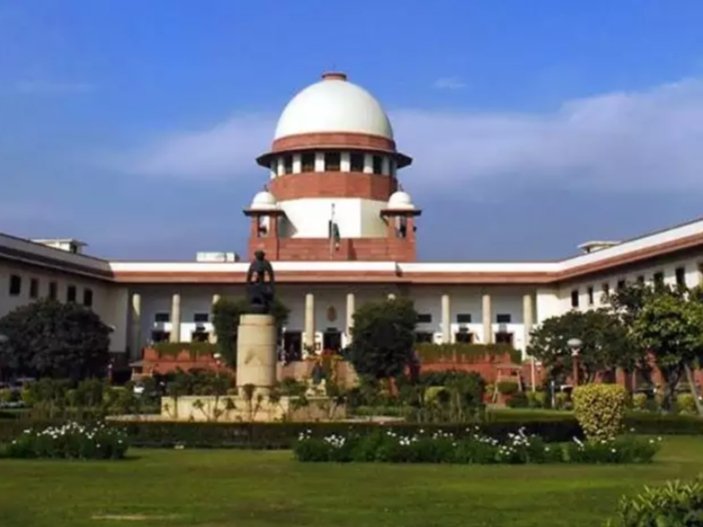Key points:
- Insults to SC/ST person made within four walls of house not offence: SC
- The court said an offence under the SC/ST Act would be made out when a member of the vulnerable section of the society is subjected to ‘indignities, humiliations and harassment; in any place within public view.
New Delhi: Insulting remarks made to a person belonging to Scheduled Castes and the Scheduled Tribes within four walls of the house with no witnesses does not amount to offence, the Supreme Court said on Thursday as it quashed the charges under the SC/ST Act against a man who had allegedly abused a woman within her building.
The top court said that “all insults or intimidations to a person will not be an offence under the SC/ST Act unless such insult or intimidation is on account of victim belonging to Scheduled Caste or Scheduled Tribe”.
It added that an offence under the SC/ST Act would be made out when a member of the vulnerable section of the Society is subjected to “indignities, humiliations and harassment” in any place within public view.
A bench of Justices L Nageswara Rao, Hemant Gupta and Ajay Rastogi said, “In view of the facts, we find that the charges against the appellant under Section 3(1)(r) of the Scheduled Tribes (Prevention of Atrocities) Act, 1989 are not made out. Consequently, the charge-sheet to that extent is quashed. The appeal is disposed of in the above terms”.
The bench said that the FIR in respect of other offences against one Hitesh Verma will be tried by the competent courts in accordance with law along with the criminal case, though separately initiated.
The bench relied on its 2008 verdict and said that this Court had drawn distinction between the expression “public place” and “in any place within public view”.
The top court said that it was held that if an offence is committed outside the building like in a lawn outside a house, which can be seen by someone from the road or lane outside the boundary wall, then that would certainly be a place within the public view.
It said that as per the FIR, the allegations of abusing the informant (woman) are within the four walls of her building and it is not the case that there was any member of the public (not merely relatives or friends) at the time of the incident in the house.
“Therefore, the basic ingredient that the words were uttered “in any place within public view” is not made out,” the bench said, adding that certain witnesses are named in the charge sheet but it could not be said that those were the persons present within the four walls of the building.
“The offence is alleged to have taken place within the four walls of the building. Therefore, in view of the judgment of this Court in Swaran Singh (2008), it cannot be said to be a place within public view as none was said to be present within the four walls of the building as per the FIR and/or charge-sheet,” it said.
Hitesh Verma has challenged the Uttarakhand High Court order by which it had dismissed his plea for quashing the charge-sheet as well as the summoning orders.
According to the state government, the FIR was lodged by the woman on December 11, 2019, for the incident having taken place on December 10, 2019 and the case was lodged against Verma and others under various sections of IPC and SC/ST Act.
He invoked the jurisdiction of the High Court seeking to challenge the charge-sheet filed in the case against him and the order taking cognizance. The Counsel for Verma argued that the disputes relating to the property are pending before the Civil Court and that, the present FIR has been filed on patently false grounds by respondent No. 2 (woman) only to harass the appellant and to abuse of process of law.
His counsel further argued that the report neither discloses the caste of the informant nor the allegations are that they were made in public view and also, the offending words are not purported to be made for the reason that the informant is a person belonging to Scheduled Caste.
The counsel for state submitted that during investigations, certain persons have supported the version of the informant that Verma and his family were encroachers on the woman’s land. It noted that there is a dispute about the possession of the land which is the subject matter of civil dispute between the parties as per the woman herself and due to dispute, Verma and others were not permitting her to cultivate the land for the last six months.
The top court said that since the matter is regarding possession of property pending before the civil court, any dispute arising on account of possession of the said property would not disclose an offence under the SC/ST law unless the victim is abused, intimated or harassed only for the reason that she belongs to Scheduled Caste or Scheduled Tribe.
(PTI)

